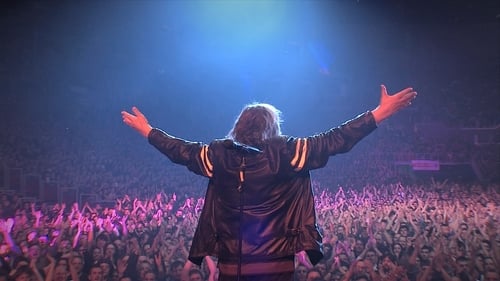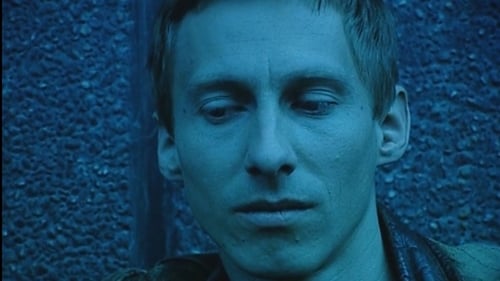György Szomjas
출생 : 1940-11-26, Budapest, Hungary
사망 : 2021-04-07

Writer

Director

Director
Some of the most symbolic moments of the 1956 Revolution in Hungary were the tooth-and-nail battles fought by the so-called 'Pest Lads' who dared to defy odds by taking on the panzers of one of the world's superpowers. The story begins on October 23rd, 1956 and ends on November 4th of the same year. Juli is Totya's girlfriend but also loves Gábor. Their love triangle will have to endure the trials and tribulations of these stirring times. A group of boys living in the outskirts of the capital are playing football in abandoned lot when Juli, a ticket inspector, brings news of protests breaking out in the city. Only Gábor accompanies her into town and together they become part of this historical event. At dawn, when the boys too come under fire from Soviet forces, they decide to join in the fight.

Director
Karesz has been raised in an institution, his mother has a new family, and her husband does not tolerate that she meets her first-born son. Karesz tramps, joining up with his casual pals he washes the windscreens of cars, sells newspapers; sometimes they steal, or break into houses if hired.

Writer
Karesz has been raised in an institution, his mother has a new family, and her husband does not tolerate that she meets her first-born son. Karesz tramps, joining up with his casual pals he washes the windscreens of cars, sells newspapers; sometimes they steal, or break into houses if hired.

Writer
1979. Gábor H. works in a law enforcement institution. He robs a bank branch, gets into jail. 1989. Gábor H. and the similarly unemployed Sanyi want to get money by robbing.

Director
1979. Gábor H. works in a law enforcement institution. He robs a bank branch, gets into jail. 1989. Gábor H. and the similarly unemployed Sanyi want to get money by robbing.

Writer
The story of a quirky love affair between Angi, an independent, no-nonsense social worker from a working-class district of Budapest and, Ildikó, a young mother who recently separated from her husband.

Director
The story of a quirky love affair between Angi, an independent, no-nonsense social worker from a working-class district of Budapest and, Ildikó, a young mother who recently separated from her husband.

Writer
It is 1989, the year of the demise of socialism in eastern Europe. Nevertheless, the one theme of Junk Movie does not refer to this historical moment of high ideals, quite the contrary, the wild, burlesque of a motif-mozaic seems merely to stick it’s tongue out at the arrogant players of politics who have their heads stuck in the clouds. The film rudely points out the mystery and unapproachability surrounding the every-day existence of politics. The scene is a greasy, falling-down block of a pub called the Gólya and its immediate surroundings.

Director
It is 1989, the year of the demise of socialism in eastern Europe. Nevertheless, the one theme of Junk Movie does not refer to this historical moment of high ideals, quite the contrary, the wild, burlesque of a motif-mozaic seems merely to stick it’s tongue out at the arrogant players of politics who have their heads stuck in the clouds. The film rudely points out the mystery and unapproachability surrounding the every-day existence of politics. The scene is a greasy, falling-down block of a pub called the Gólya and its immediate surroundings.

Director
Margó and Ildi are good friends. Margó lives with her simple, conservative parents, her fiancé is a roadie, her lover has been in prison for two years. Ildi was a pupil of a reformatory school, she buried an Araba husband already and her Rumanian partner is living in Paris. She lives together with a Yugoslavian man in a rented flat. Both are models at the Scholl for Fine Arts, attend an evening school and earn their money by selling their bodies. The lover of Margó, Attila is suddenly released. Margó and Ildi want to get rid of him, but Attila does not let them do that...

Director

Director
A pair of Hungarian filmmakers search the United States for the former Mr. Universe and husband of the late Jayne Mansfield, Mickey Hargitay in this comedy drama.

Director
The sad tale of a proletarian malcontent ensconced in a monstrously depressing housing project who—even less effectually than the heroes of Bald-Dog Rock—attempts to change his life. Purchasing a power drill and slinging it across his shoulder like the anti-hero of a spaghetti western, he turns entrepreneur, boring holes in his neighbors’ walls so that they can hang mirrors or pictures.

Director
In this mix of black comedy and harsh drama, a man and wife are divorced yet still have to share their living quarters even though the wife has remarried -- housing is seriously hard to find in Budapest. Csaba (Karoly Eperjes) has just come out of doing a stint in prison because he stabbed a man while drunk, and when he goes home he discovers that his wife (Mariann Erdos) is now living with someone else in their apartment. Csaba quickly divorces his wife but he still has to move in and share a kitchen and bathroom with her and her new mate, suffering because he still loves her. This untenable situation is complicated by visits from Csaba's mother, and by various women he starts seeing, as well as by a busy-body neighbor. The three main roles of Csaba, his wife, and her lover (Peter Andorai) are excellently interpreted in this satire on social morés and economic realities.

Writer
A Hungarian band plays American rock & roll and blues hits with great enthusiasm and passion, but success seems to avoid them. TV and radio don't play their songs, sometimes even their crowd just sits and sips beer. Something must be done, and the band's leader (Lóránt Schuszter) comes up with the big idea: write and play songs for the people about themselves and not about some exotic, but too distant people's life. "We move from Tobacco Road to Retek street" With the remains of the band and a second singer (Gyula Deák "Bill") they find what they failed to show people before. The rich new sound can finally translate the spirit of blues and rock much more than words from any dictionaries could, this is the Köbánya-blues.

Director
A Hungarian band plays American rock & roll and blues hits with great enthusiasm and passion, but success seems to avoid them. TV and radio don't play their songs, sometimes even their crowd just sits and sips beer. Something must be done, and the band's leader (Lóránt Schuszter) comes up with the big idea: write and play songs for the people about themselves and not about some exotic, but too distant people's life. "We move from Tobacco Road to Retek street" With the remains of the band and a second singer (Gyula Deák "Bill") they find what they failed to show people before. The rich new sound can finally translate the spirit of blues and rock much more than words from any dictionaries could, this is the Köbánya-blues.

Director
The second in command of a group of highwaymen, the only ones left of Hungary's freedom fighters in the late 17th century, has a wife who really, really wants him to come home and stop gallivanting around the countryside. The only way he can figure to do this is to inform on the group to the authorities in as harmless a manner as possible. Unfortunately, these betrayals cause the group to lose many men, and the traitor grows fearful of the authorities. He gives officials every scrap of information he has in return for a full pardon, and he returns home. His wife, when she hears of these events, is infuriated. Such betrayal is far in excess of anything she can condone, and she kills him. ~ Clarke Fountain, Rovi

Writer
György Szomjas’s first feature—made after a decade of short documentaries—is a bold attempt at a goulash western, set on the puszta, or Great Hungarian Plain, in 1837. Mixing Miklós Jancsó imagery and a Sergio Leone narrative, this ballad-like saga opens with image of a lone horseman on the empty plain, riding past a rude gallows. The film concerns the vengeful return of a legendary betyár (outlaw), briefly a hero to the local herdsmen who oppose the state building a canal across their grazing land. Although Szomjas works from ethnographic records and archival material, it is hardly surprising that this violent, primitivist film would be more popular with Hungarian audiences than critics. Replete with young guns, crooked sheriffs, tavern brawlers and hardbitten plug-uglies, this widescreen film is strikingly shot by Elémer Ragályi (cinematographer for most of Gyula Gazdag’s films)—a feast of loamy, autumnal colors.

Director
György Szomjas’s first feature—made after a decade of short documentaries—is a bold attempt at a goulash western, set on the puszta, or Great Hungarian Plain, in 1837. Mixing Miklós Jancsó imagery and a Sergio Leone narrative, this ballad-like saga opens with image of a lone horseman on the empty plain, riding past a rude gallows. The film concerns the vengeful return of a legendary betyár (outlaw), briefly a hero to the local herdsmen who oppose the state building a canal across their grazing land. Although Szomjas works from ethnographic records and archival material, it is hardly surprising that this violent, primitivist film would be more popular with Hungarian audiences than critics. Replete with young guns, crooked sheriffs, tavern brawlers and hardbitten plug-uglies, this widescreen film is strikingly shot by Elémer Ragályi (cinematographer for most of Gyula Gazdag’s films)—a feast of loamy, autumnal colors.

Director
Documentary about the Italian men that visit Hungary to meet girls and the Hungarian women that fall in love with them.

Director

Director

Director

Director

Director
3 friends (a film director, a famous showman and a writer) haven't talked to each other for a while. But now, for the sake of the movie, they sit down together and talk about the things that separated them. (from IMDb)


















